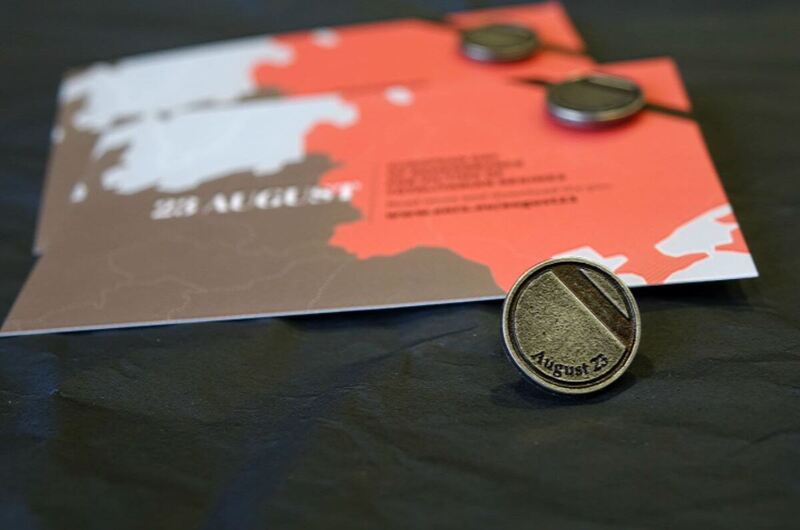23 August marks the European Day of Remembrance for Victims of Totalitarian Regimes proclaimed by the European Parliament in 2008. On this day in 1939, just before the outbreak of the Second World War, the Third Reich and the Soviet Union signed an agreement known as the Molotov-Ribbentrop Pact. The ‘Remember. August 23’ campaign aims at recalling their individual stories.
The IPN is joining the ENRS’s international public educational campaign ‘Remember. August 23’ which aims at commemorating the victims of the 20th-century totalitarian regimes.
Below, please find short films prepared by ENRS dedicated to the individuals who experienced totalitarian violence
Władysław Bartoszewski (1922-2015) was a Polish historian, journalist, writer, politician, former Auschwitz concentration camp prisoner, the Second World War Resistance fighter, participant in the Warsaw Uprising, political prisoner during the communist era, Righteous among the Nations of the World.
Ieva Lase (1916-2002), was a Latvian translator, teacher, member of the national resistance movement, dissident and political prisoner.
Doina Maria Cornea (1929 – 2018) was a professor of French language, linguist, translator, human rights activist, and one of the most emblematic figures of the antitotalitarian opposition in Romania.
Intellectually independent in a country under communist rule, she was spied on and arrested, mocked and persecuted. Her example teaches us that it is necessary to call a lie by its name as becoming aware of the truth brings liberation.
Jaan Kross (1920–2007) was an Estonian writer, a symbol of resistance against totalitarianism and the ‘conscience of the Estonian people’. His promising lawyer’s career was thwarted by the war and Estonia’s incorporation to the USSR. In 1944, during the Nazi occupation, he spent half a year in jail, and after the country was re-occupied by the Soviet Union, he was sentenced to slave labour in the Gulag (1946–1952). Kross managed to survive despite all odds and once back in his hometown Tallinn in 1954 he devoted himself to literature. Although he was also a translator and poet, international acclaim (crowned with several nominations to the Nobel Prize in Literature) came to Jaan Kross thanks to his historical novels.
An outer representation of this remembrance can be wearing a pin with a mournful black band, prepared on the initiative of the European Network Remembrance and Solidarity. The European Network Remembrance and Solidarity encourages everyone to make a symbolic gesture of remembrance by sharing and wearing a special pin with the inscription “Remember. August 23”.
You can find the pins in the following locations:
• Institute for the Study of Totalitarian Regimes – Czechia
• Estonian Institute of Historical Memory – Estonia
• Committee of National Remembrance (NEB) – Hungary
• Holocaust Memorial Center – Hungary
• The Museum of Occupations and Freedom Fights – Lithuania
• The National Museum of History of Moldova – Moldova
• Krzyżowa Foundation – Poland
• Zajezdnia History Centre – Poland
• Museum and Memorial Auschwitz-Birkenau – Poland
• European Solidarity Center – Poland
• Warsaw Rising Museum – Poland
• Museum of the Second World War – Poland
• Museum of Cursed Soldiers and Political Prisoners of Polish People’s Republic – Poland
• Institute of National Remembrance (IPN) – Poland
• National History Museum of Romania – Romania
• Nation's Memory Institute (UPN) – Slovakia
The pins will be also distributed by the International Commission for Evaluation of the Crimes of the Nazi and Soviet Occupation Regimes in Lithuania.
